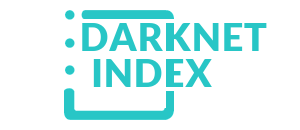The darknet, also known as the dark web, is a concealed section of the internet that's inaccessible via standard search engines. You can only access it using special software, settings, or authorization. This area comprises websites and content that are purposely kept hidden from public view.
Accessing darknet requires using Tor Browser, a special web browser that routes your internet traffic through a global network of relays managed by volunteers. This way, it becomes very difficult to trace which websites you're visiting, and these sites won't know where you are located.
When visiting the dark web, use a secure browser like Tor, do not reveal any of your personal information, and don't open suspicious files or links to stay safe.
The Darknet is often utilized for secure communication, discreet information or file sharing, anonymous research without identity exposure, and occasionally for engaging in illicit activities. It is also recognized for hosting underground black markets(darknet markets), whistleblowing platforms, and discussion boards that champion freedom of speech.
While accessing Darknet Markets themselves is typically not against the law in most places, engaging with illicit goods within them is generally considered a crime. On the other hand, some people might visit Darknet Markets for lawful purposes such as research, journalistic work, or simply to explore online communities. It's essential to know the local laws regarding online activities, and be cautious when using these platforms to avoid any potential issues.
Telegram Shuts Down $27 Billion Crypto-Laundering Darknet Platform Haowang Guarantee
Telegram has taken down Haowang Guarantee, a massive Chinese-language darknet market linked to more than $27 billion in illegal crypto transactions.
Previously known as Huione Guarantee, Haowang announced on its official website that it is shutting down all operations. This came after Telegram removed thousands of related groups, channels, and NFTs on May 13, effectively disabling the platform’s ability to function. According to a report from The Wire, Telegram acted in response to earlier investigations by Wired and blockchain analytics firm Elliptic, which exposed the platform’s deep involvement in crypto scams, cybercrime, and money laundering.
Telegram spokesperson Remi Vaughn confirmed that the platform removed all communities flagged by these investigations. He emphasized that activities such as scamming and money laundering violate Telegram’s terms of service and are always taken down when discovered.
Elliptic described Haowang Guarantee as the largest darknet market to ever exist. It was a central hub for criminal vendors supporting various online fraud schemes. Services offered included laundering money, selling stolen identity data, providing tools for crypto scams such as pig butchering, using deepfake technology, and even supplying physical restraints allegedly used in scam compounds in Southeast Asia.
Investigative reports have also linked the group to Cambodia’s political elite. One of its directors, Hun To, is reportedly a cousin of Prime Minister Hun Manet. Although no formal charges have been filed, Hun To has been tied to past allegations of heroin trafficking and illegal money operations.
Elliptic estimates that Haowang Guarantee facilitated $27 billion in illegal activity, mostly using the stablecoin Tether (USDT). The platform was a one-stop shop for criminals looking to launder money, buy stolen personal data, or acquire telecom equipment for use in scam call centers.
Tom Robinson, co-founder of Elliptic, called the platform’s takedown a major victory. He said the shutdown would significantly disrupt global online scam networks, describing Haowang as a key player in the spread of online fraud around the world.
In a related move, the U.S. Treasury’s Financial Crimes Enforcement Network (FinCEN) recently proposed disconnecting Huione Group, Haowang’s parent company, from the U.S. financial system. According to FinCEN, the group processed at least $4 billion in illegal funds between August 2021 and January 2025.
Elliptic's deeper analysis revealed that crypto wallets tied to Huione Group have moved more than $98 billion overall, showing the vast scale of their operations.
Although Haowang’s closure is a major setback for cybercriminals, the darknet ecosystem remains active. A new platform called Xinbi Guarantee has already emerged as a replacement, offering many of the same illegal services. So far, wallets linked to Xinbi have processed $8.4 billion in crypto, but experts believe the actual number is likely much higher, since only known transactions and wallets were counted.
